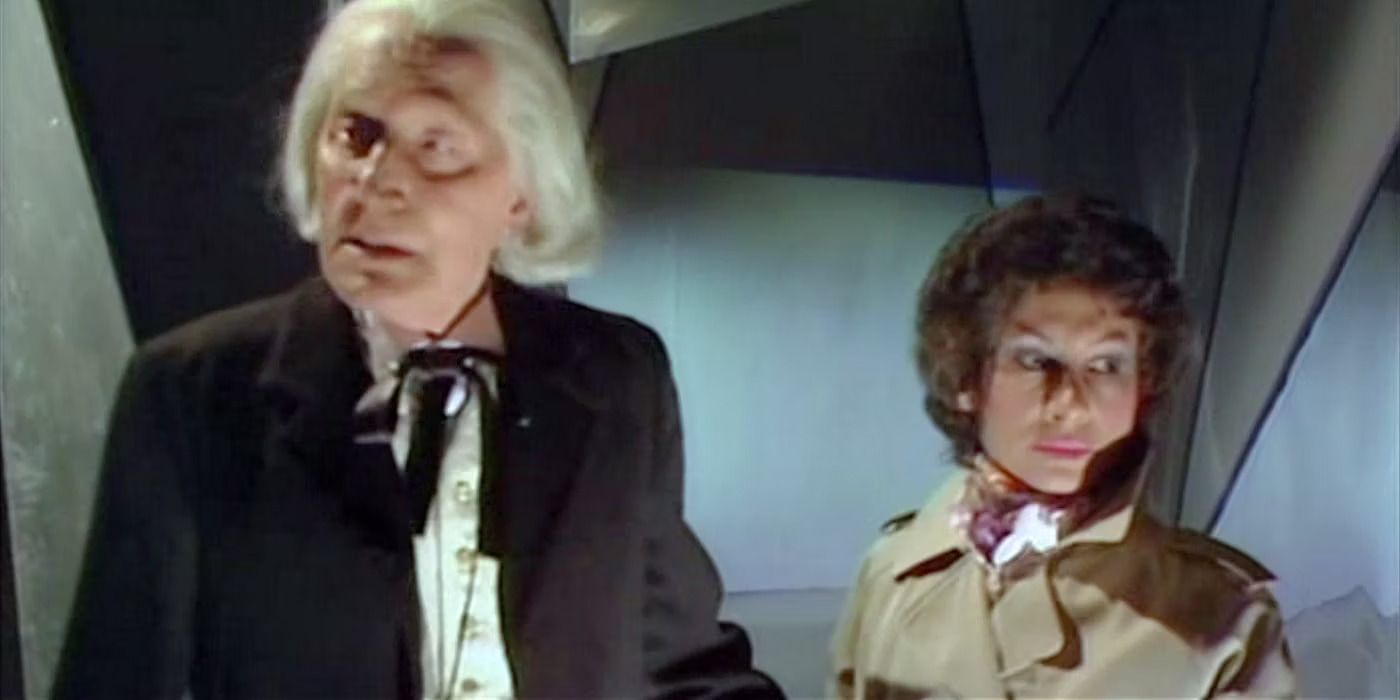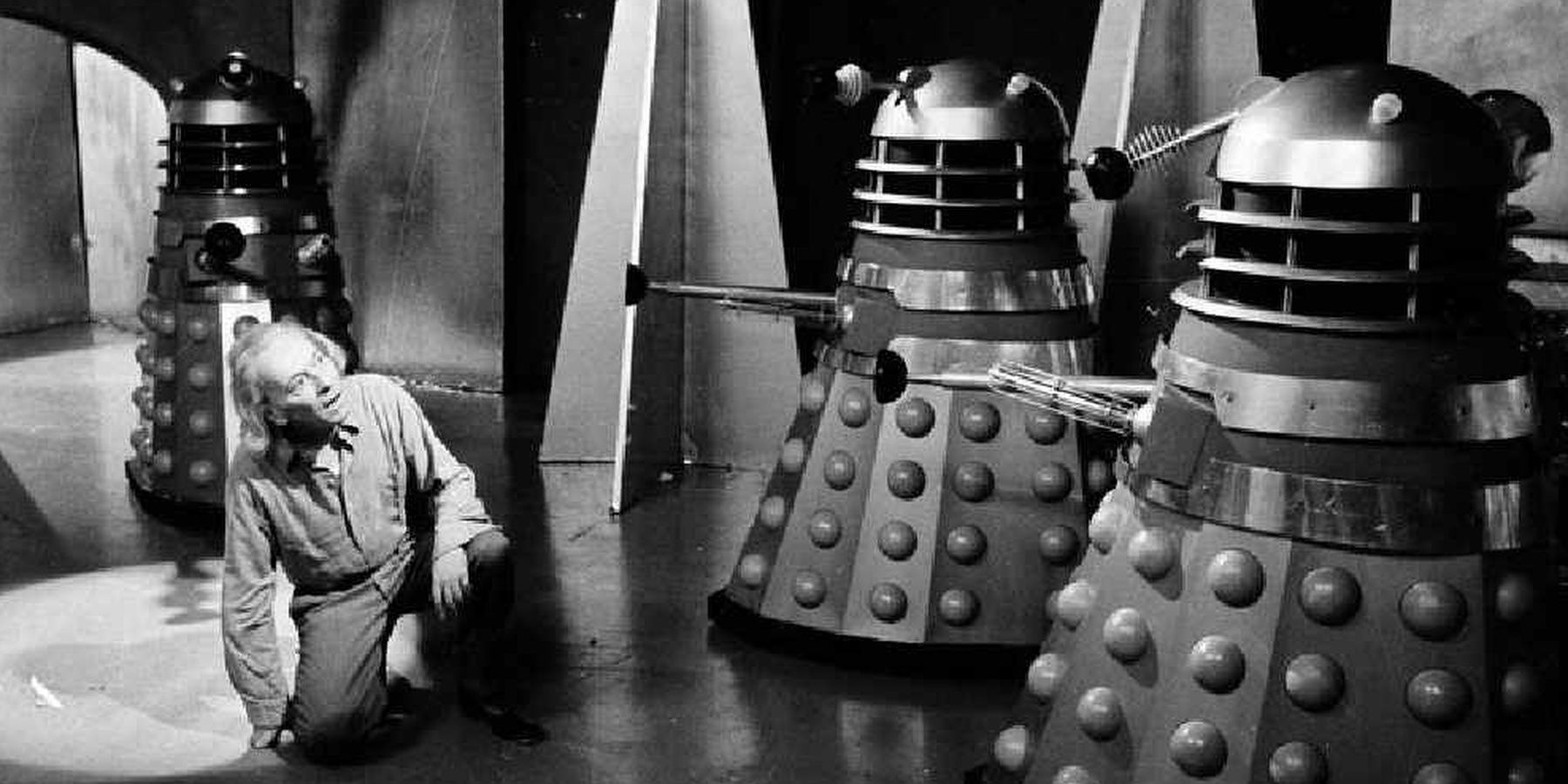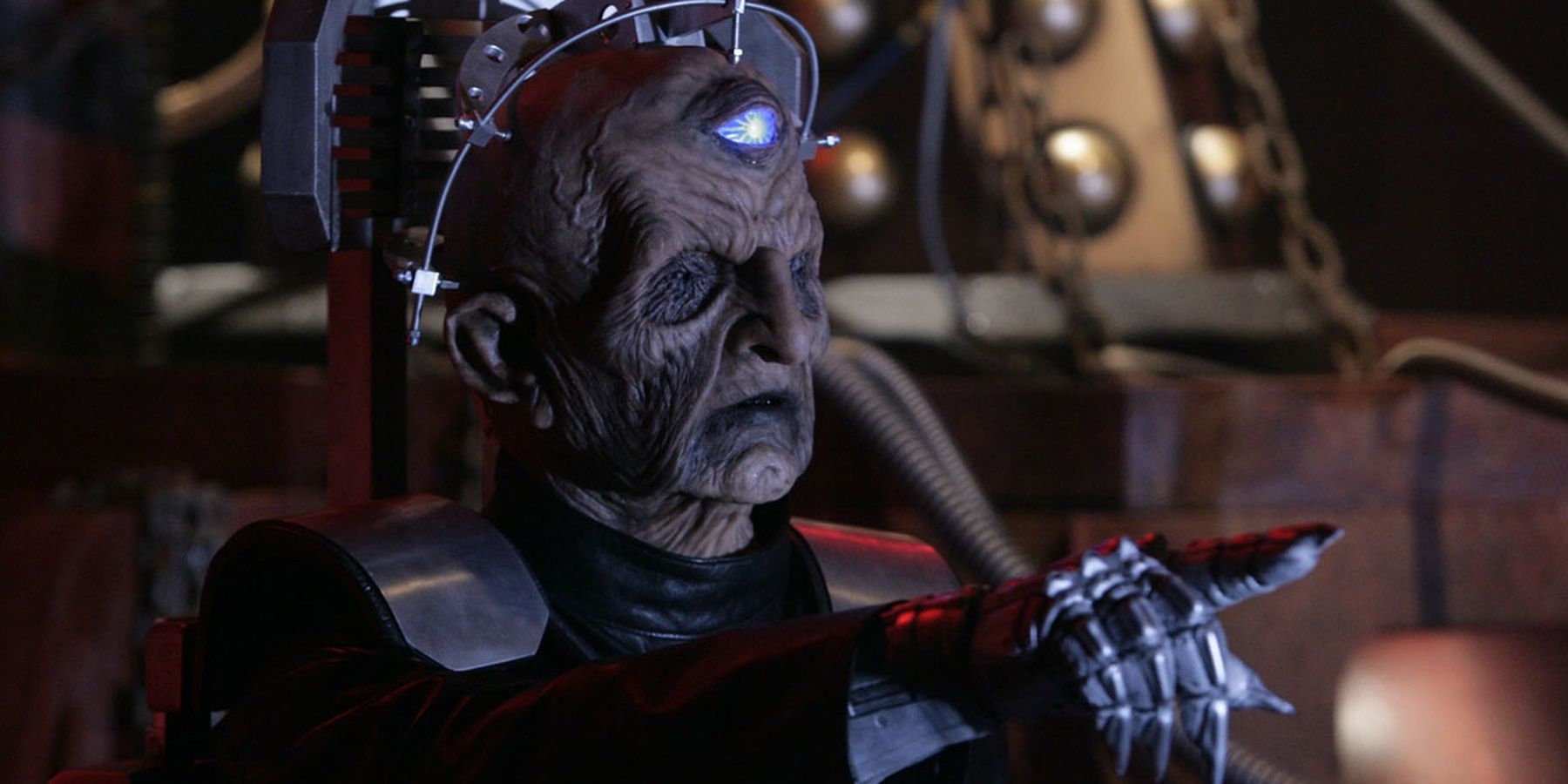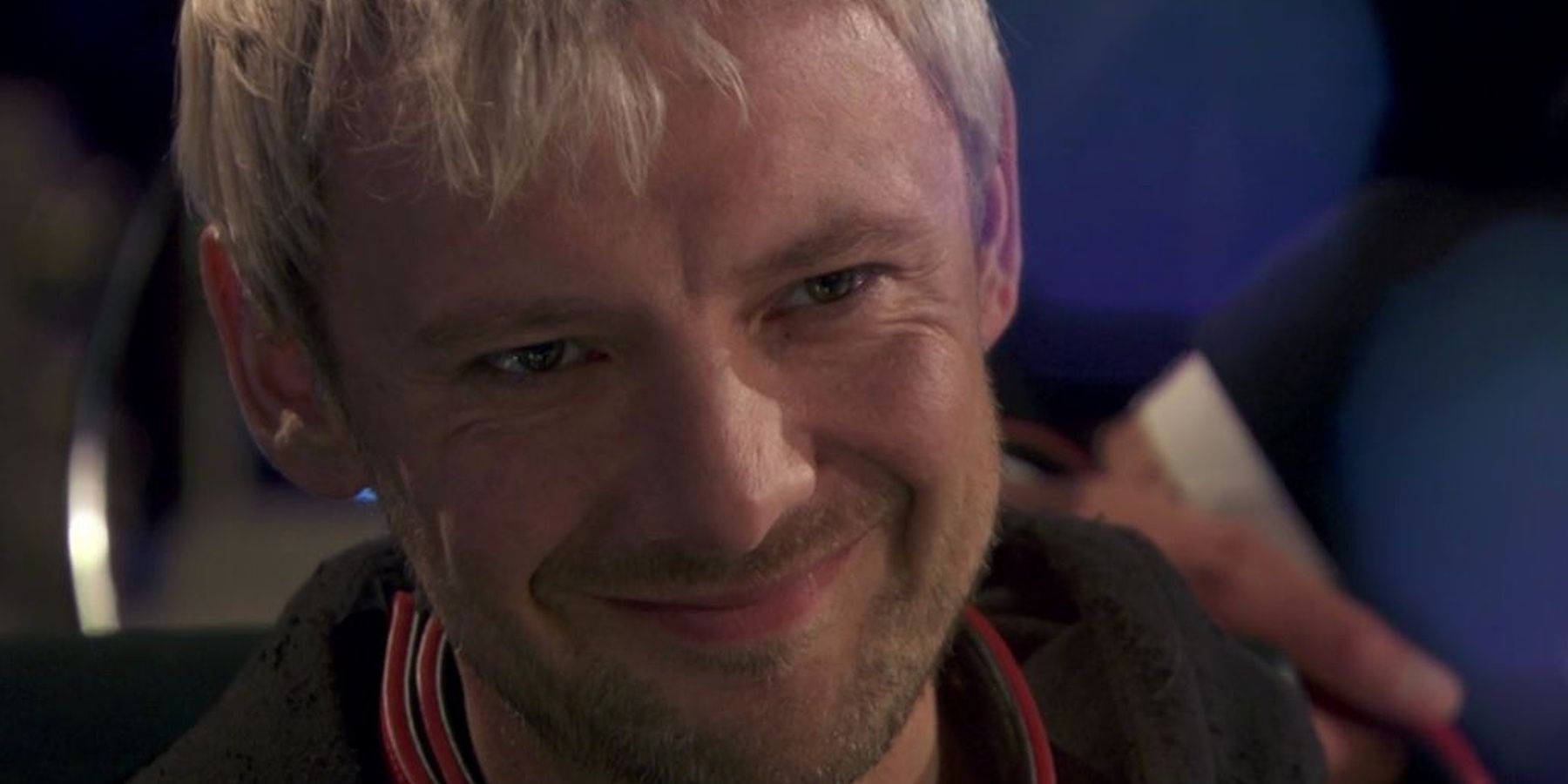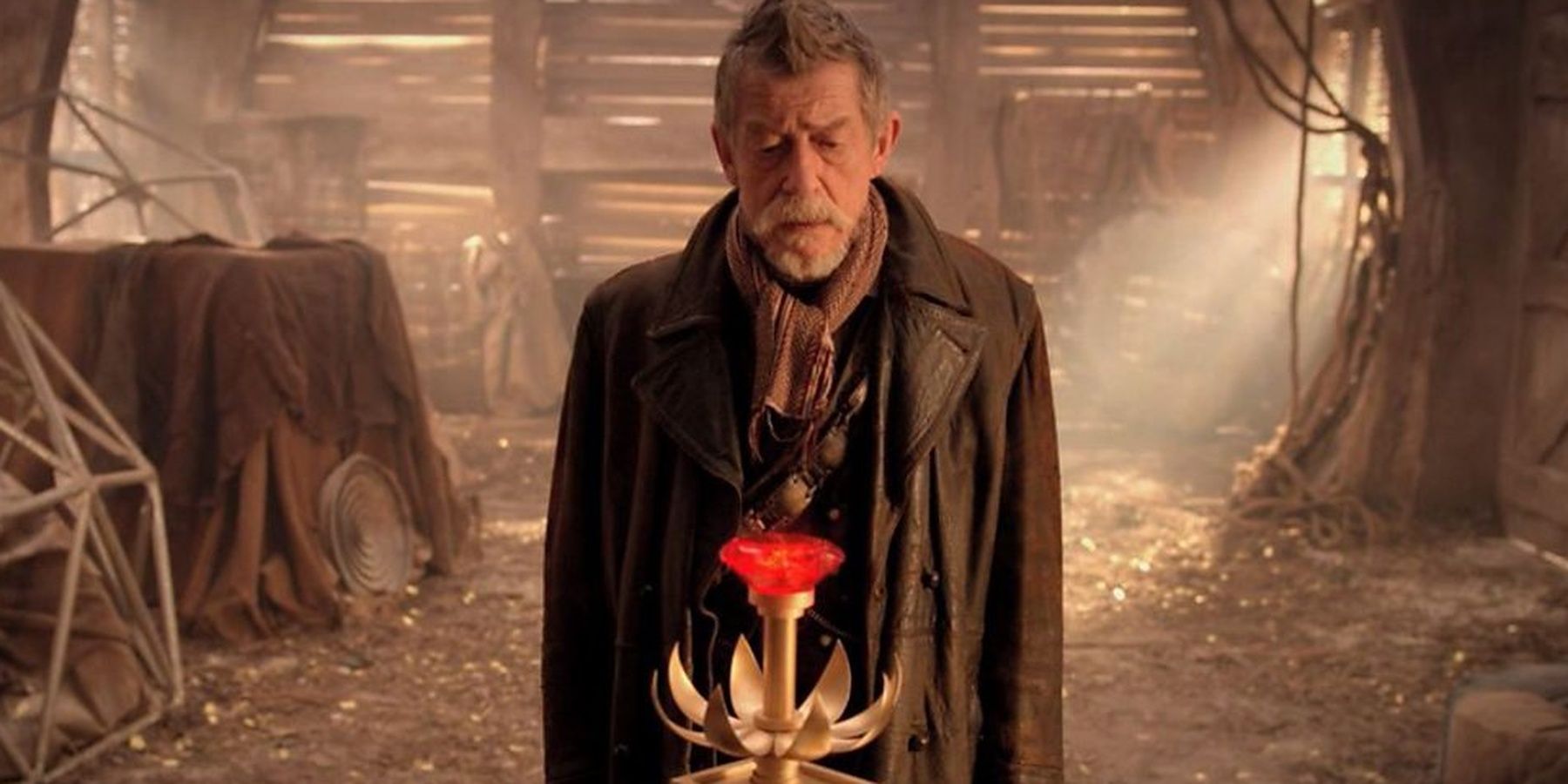In the long history of Doctor Who, The Doctor has come up against many foes. The Doctor battled the Nestene Consciousness under the London Eye, came up against Haemovores draining people of their blood, and stopped the lava-loving Shalka from destroying the Earth's ozone layer. Through all the enemies fought and across all the galaxies and time periods traveled, one enemy remains the most feared and the most famous.
The Daleks have been woven into the history of the show since the second series in 1963. Always bent on domination and extermination, Daleks evolved over the millennia of in-universe time (and decades of real-world time) to become something entirely new and much more deadly. The conflict between the Time Lords and the Daleks culminated in the Time War, a complex conflict that seemed to destroy both races apart from The Doctor. With such a tumultuous history, how did these two species come to be such great enemies?
Hailing from the planet Skaro, the Daleks' first appearance initially stated that they shared their planet with another race, known as Thals. The two species entered into a nuclear war leaving the Thals mutated, and the Daleks retreated within their city. Soon xenophobia spread through the Daleks, and they became consumed with destroying the Thals. After their first appearance, the outcome showed the Daleks to be destroyed, but the villains were so popular that they were brought back time and time again, each time attempting to cleanse the universe of anything other than pure Dalek genetics.
Following their first appearance, the Daleks grew their empire and developed time travel. They tried multiple times to conquer Earth, but were thwarted by multiple incarnations of The Doctor and the Time Lords. In 1974, writer Terry Nation made some slight changes to the origins of the Dalek race. The progenitors of the Daleks were changed to a race called the Kaleds who waged a 1000-year war with the Thals, leading Kaled scientist Davros to perform genetic experiments, resulting in the birth of the Daleks.
Throughout their timeline and evolution, The Doctor has had many opportunities to stop the spread of the Dalek; however, his reticence to commit an act of genocide has often only delayed the progression of the war machines. For example, in 1975's "Genesis of the Daleks," the Fourth Doctor is actively sent to stop the Daleks by the Time Lord Council, who have seen the potential of the Daleks to conquer the Universe. This point is often seen as the inciting point of the Time War, the event that occurred between the 1988 television movie and the return of the series in 2005.
Little was revealed about this conflict at first, but as the revival series continued, more details of the Time War trickled out. Nine revealed he was the last Time Lord in existence after the outcome of the war, and Jack Harkness also revealed what he knew about the war, explaining how the Daleks seemed to disappear outside of space and time. Over time, audiences discovered that some fighting did take place on Gallifrey and The Doctor didn't want to take part. The Doctor had seen his own people become twisted by war, and through his own death and rebirth into The War Doctor, he finally took a stand to put an end to the fighting.
Meanwhile Rassilon, the leader of Time Lord society, was devising more and more desperate ways to end the fighting and the Daleks. Willing to unleash the destruction of all time to finish things once and for all, Rassilon issued what he called The Ultimate Sanction with the almost unanimous agreement from the rest of the Council. Upon learning of this, The War Doctor stole a weapon known as the Galaxy Eater with the intent of destroying both Gallifrey and the Daleks. The war itself became time-locked so that no one could enter or exit in an effort to contain the carnage.
The Master also had a role to play in the devastation, although unbeknownst to him, he was a pawn in Rassilon's plan. To escape the time lock, Rassilon had implanted the 4-beat drumming of a Time Lord heart retroactively into The Masters' mind so that he would be drawn back to the war and use the Galaxy Eater to end things. However, The Master didn't take kindly to being used, and sacrificed himself to stop Rassilon's plan.
For the show's 50th anniversary, the truth of the Time War was finally revealed as the Galaxy Eater, a weapon of sentience, revealed that there was another way to end the conflict. The weapon helped to manifest all incarnations of The Doctor thus far, including The War Doctor, to work together to freeze Gallifrey and remove it from time. Once this occurred, the Daleks ultimately accidentally destroyed themselves and The Doctor regenerated into his Ninth incarnation, retaining no memory of the true fate of Gallifrey.
Of course, the time war was not the end of the Daleks, nor the Time Lords. The Daleks kept turning up like exceptionally bad pennies. In various episodes they became infused with human DNA, infected with emotions, and more, and always remained intent on extermination and assimilation. As for the Time Lords, they were freed from the time lock and relocated Gallifrey to the end of the Universe. However, the evil they perpetuated in the war caught up with them when the surviving Master discovered the continued existence of his people, and allied himself with the Cybermen to end the Time Lords once and for all.
The lesson of the Time War, apart from it being an excellent way solve plot holes and continuity issues, is that there are no winners. The Daleks lost. The Time Lords lost. The Doctor lost. Ultimately, the spread of the Daleks was halted, but it wasn't completely eradicated. The Time Lords were destroyed, their reputation and race tattered. All that remains is a lonely Doctor, traveling the stars, picking up strays, and trying to escape the past that never ends.


